Hope Floats is an Anti-Capitalist Romance
"You're talking about the American Dream. You find something that you love and then you twist it and you torture it."
I always watch Hope Floats in September. Something about this Sandra Bullock romantic drama is just perfect for the late summer days as they fade into autumn. Directed by Forest Whitaker, produced by Lynda Obst, and written by Steven Rogers, the film has always been a comfort movie for me. But as I’ve gotten older, I’ve also come to appreciate its staunch anti-capitalist, anti-careerist, pro-community themes. It brings these themes into sharp focus with the gentility of a folk song, one that lulls you at the same time that is gets your fired up.
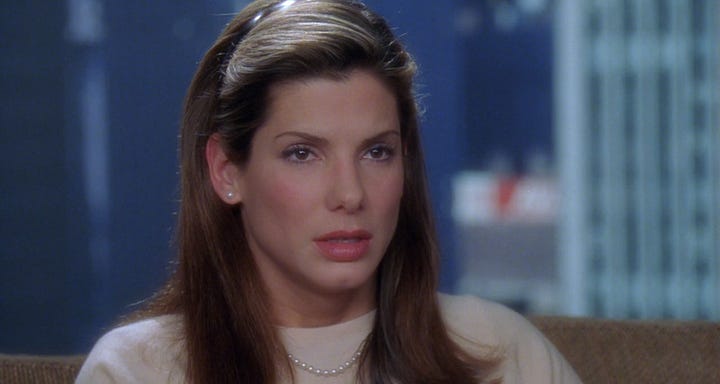
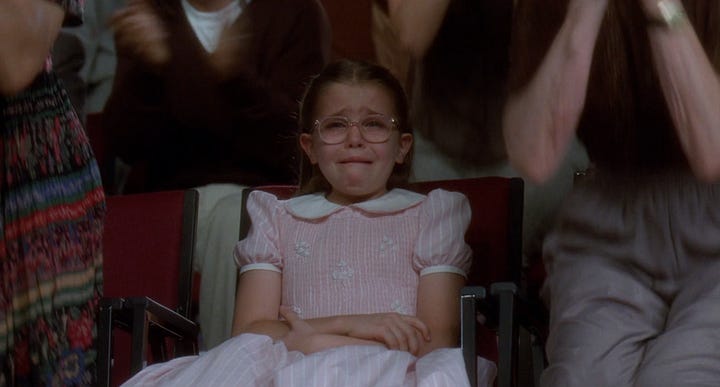
Sandra Bullock plays Birdee, a small town beauty queen from Texas who married her high school sweetheart (Michael Paré), a shallow businessman with a honey-tongued southern drawl. They have built a life together with their daughter Bernice (Mae Whitman) in Chicago. In the opening scene Birdee agrees to attend a tabloid talk show thinking she was going to get a free makeover. Instead her best friend (Rosanna Arquette) reveals on national television that she’s having an affair with her husband. This results in the swift dissolution of the marriage, and Birdee’s relocation to her home town of Smithville, Texas.
As they make the drive from Chicago to Texas, Bernice quips the town wasn’t on any maps until they got to Texas.
Smithville, it turns out, is a real town located about an hour outside of Austin. It has a population just shy of 4,000 people. I grew up in a similarly rural community in Northern California, though a little more insular (it’s 100 miles from everything), so I always related to Birdee’s fitful relationship to her hometown. I moved home during the recession, a few years after college, when I had a mixture of failure to launch and a mental health breakdown. I wish I could say my two years back home was as eventful as Birdee’s were, but they were certainly transformative. It was during that time that I really cultivated my love for movies and film history. For once, I had the time to really focus on my passion. Little did I know that soon that passion would lead towards jobs, and those jobs would lead towards getting sucked into the same kind of capitalist machine that ate Birdee up and spit her back out.
But I digress.
Unlike nerdy me, Birdee was the queen bee at her high school. She tells her daughter she was the Queen of Corn three years running (a feat unsurpassed). It’s implied she was the prom queen and possibly the head cheerleader. Her husband was a football star, naturally. When they arrive in town, Birdee tells Bernice, “Believe me, honey, once upon a time, your mama knew what it meant to shine.” Birdee is wistful about her past. It’s the only thing that’s keeping her floating during her broken present, but this nostalgia is also obscuring any thoughts of a hopeful future.
Arriving home, her mother Ramona (Gena Rowlands) tells her she looks awful. “Well, I feel awful, Mama,” she replies. Through the next few scenes we learn that Birdee had oriented her life so fully around being her husband’s wife that she is completely unmoored now that she is untethered from him. Her “job” was this marriage and she has failed to keep it together, despite putting in countless hours to maintain it. She carries her perceived failure like a brick. She also carries a resentment towards her mother. Ramona is a larger-than-life character who made a living making wacky taxidermy animals. Growing up Birdee was always a daddy’s girl, but some time in the recent past her father had a stroke, which means he can no longer communicate verbally and lives in an assisted living facility. Bernice is similarly a daddy’s girl, taking her parents separation particularly hard because of it. She’s also beginning to harbor the same resentments towards Birdee that Birdee does towards Ramona.
Birdee spends the first few scenes of the film wallowing in her loneliness. Ramona takes the opportunity to re-introduce local handyman, and low key heartthrob, Justin Matisse (Harry Connick Jr.) into her life. Like Birdee and her husband, Justin had big dreams and left Smithville with stars in his eyes and a suitcase, heading to off to California to make his fortune. But more on this later.
When Birdee finally pulls herself together she goes to the local temp employment agency seeking a job. Dot (Dee Hennigan), the woman who runs the place remembers Birdee well. She makes Birdee wait and wait and wait. Later, Birdee admits that she doesn’t even remember this woman, saying “I don't know how l treated you in high school. I'm guessing it was pretty bad, seeing how you're hell-bent on putting me in my place right now. And that's okay. Just. . .just put me in a job too. I would really be grateful.” Moved by Birdee’s slice of humble pie, Dot asks her a series of questions to figure out what kind of job she might be able to place her in.
Unfortunately, Birdee believes she has no marketable skills, having spent the last decade or so running their household and raising Bernice. Although this point is not dwelled on, this scene recalls one in Susan Seidelman’s She-Devil, where the film’s protagonist Ruth (Rosanne Barr) starts a temp firm helping women find work. In Seidelman’s film there is a montage where Ruth interviews a bunch of women who think they have “no job experience.” Actually, they have a lot; it’s just all “women’s work” like housekeeping and helping their lousy ex-husbands with finances — things that are taken for granted in most capitalist societies. For more on this subject, I recommend reading Katrine Marçal’s Who Cooked Adam Smith’s Dinner and Arlie Russell Hochschild’s The Second Shift: Working Parents and the Revolution at Home.
After thinking on it for a bit, Birdee says she used to like taking pictures and wonders if she could get a job at the newspaper or Jackson’s Portrait Studio. Dot replies that the newspaper is not hiring and the portrait studio has closed down. It’s a small glimpse into the economics of this tiny little town. Similarly, every time I visit my own hometown it seems another business has closed. I will always remember places like Dawn’s Paper Clip and Top Hat Video with such fondness.
In Hope Floats, Dot tells Birdee to spend the weekend taking photos and she’ll see what she can do. We follow Birdee and her old Kodak Brownie camera as she takes beautiful photographs of the town’s working class, like the waitress at a diner, and developing them in her own dark room. The photos are lovely and show an artistic side to Birdee she has been neglecting.
Of course, art does not fit into the capitalist machine, so the only work she can get is feeding negatives into a giant, often broken, photo processing machine at the local one-hour photo shop. It’s a job that takes little of the skill Birdee clearly has for photography, and is not very fulfilling. But it’s a living.
Her artistic side reignited, she begins to take her camera with her during her time off. She even derides her own love of “pretty pictures,” talking about them with distain, even though they bring her joy. Again, Birdee can’t see her own value because she judges herself against the unrealistic standards of capitalistic gains. At the same time, she begins reconnecting with Justin. He has a more Zen approach towards life. After asking her out to dinner, he takes her fishing and then cooks the fish himself. Despite being surrounded by blissful nature, she finds herself chatting about their shared past throughout the date, unable to slow down and enjoy the moment, to really live in it.
In one of my favorite scenes the two attend a two-step dance, lit up like a fairy-light wonderland. Birdee runs into one of her old friends from high school, visiting from the big city. The woman is noxious. Gossiping about Birdee’s divorce, gossiping about Dot, and gossiping about Justin, whom she heard, “Lost that great job in California because he wouldn’t work hard enough.” Birdee — and the audience — get a pretty good idea of what Birdee and her crowd must have been like back then.
But Birdee is hardly listening. She’s making eyes with Justin. Again afraid of a shared silence, Birdee shirks away from dancing with him. “Dancing is just a conversation between two people,” Justin says, “Talk to me.” The two share a two-step dance, and then a slow dance to the Garth Brooks version of “To Make You Feel My Love.”
Later that night as Justin shows Birdee the beautiful home he’s been building completely by hand, the following exchange occurs:
Birdee: This is gonna be a real nice house, Justin. Who was your architect?
Justin: You're kidding, right? That's half the fun.
Birdee: You go around Smithville painting houses, and you can do this?
Justin: Yeah.
Birdee: You could do so much more.
Justin: I guess so, huh?
Birdee: You know what l meant.
Justin: I know exactly what you meant. You're talking about the American Dream. You find something that you love and then you twist it and you torture it. Try to find a way to make money at it. Spend a lifetime doing that. At the end, you can't find a trace of what you started out loving.
Birdee listens attentively, but it’s still not clear if she really hears him. In an earlier scene Ramona had shared a similar sentiment, telling her daughter, “I mean, look at me. My life has no big meaning or direction or purpose, and I'm happy.”
However, by the end of the film, through hard won lessons in loss and love, Birdee learns to embrace the good things she has in her life and let go of all the capitalist bullshit that has been keeping her down. This includes shedding her soon-to-be ex-husband, and all that he represents, like dead skin. She’s building a new life with her daughter and her nephew, who had been left in Ramona’s care by Birdee’s flighty sister, and with Justin. In the end these four people create a family unit not built on a goal of upward mobility, but one that is content with the kind of happiness that comes from a sense of community, of mutual respect, and of a deep and abiding love for one another.
As I was watching Hope Floats during my annual rewatch this year, I thought back to the last “real” job I had. It was with arguably the biggest entertainment company in the world. After a day-long interview process with several employees, who would later become my coworkers for two years, the woman who would be my manager met me with coffee to check in on how the day had gone. The last thing she asked me was where I saw myself in five years. I said it was too hard to predict where the world would be in a year, let alone five years. This was spring of 2019, so that turned out to be pretty prophetic. What I told her was that wherever I was and whatever I was going to be doing, I knew it would be helping connect people to movies that they might love or that might change their lives, but otherwise not have heard about. Turns out I was correct about that part, too.
At one point during our meeting I ran into a friend from college. One of those amazing coincidences that tend to happen during stressful moments in life. He wished me luck and we made plans to meet up for dinner later that night. I left that job a few years later, and so far have not returned to the world of corporate America, though I have still found a way to do what I love. I even had time to write a book! And, most importantly, I’m still friends with that person from college.
In the years since I left that job, I plunged head first into doing what I love — writing — and left a city I have contentious relationship with (L.A.) to move to one I had never lived in before (coincidentally, Chicago) to build a life with my partner, a cat, and two guinea pigs. I love our little family. Some months are easier than others in terms of our finances, but I can safely say we’re both still doing what we love with passion and integrity. The American Dream, be damned.




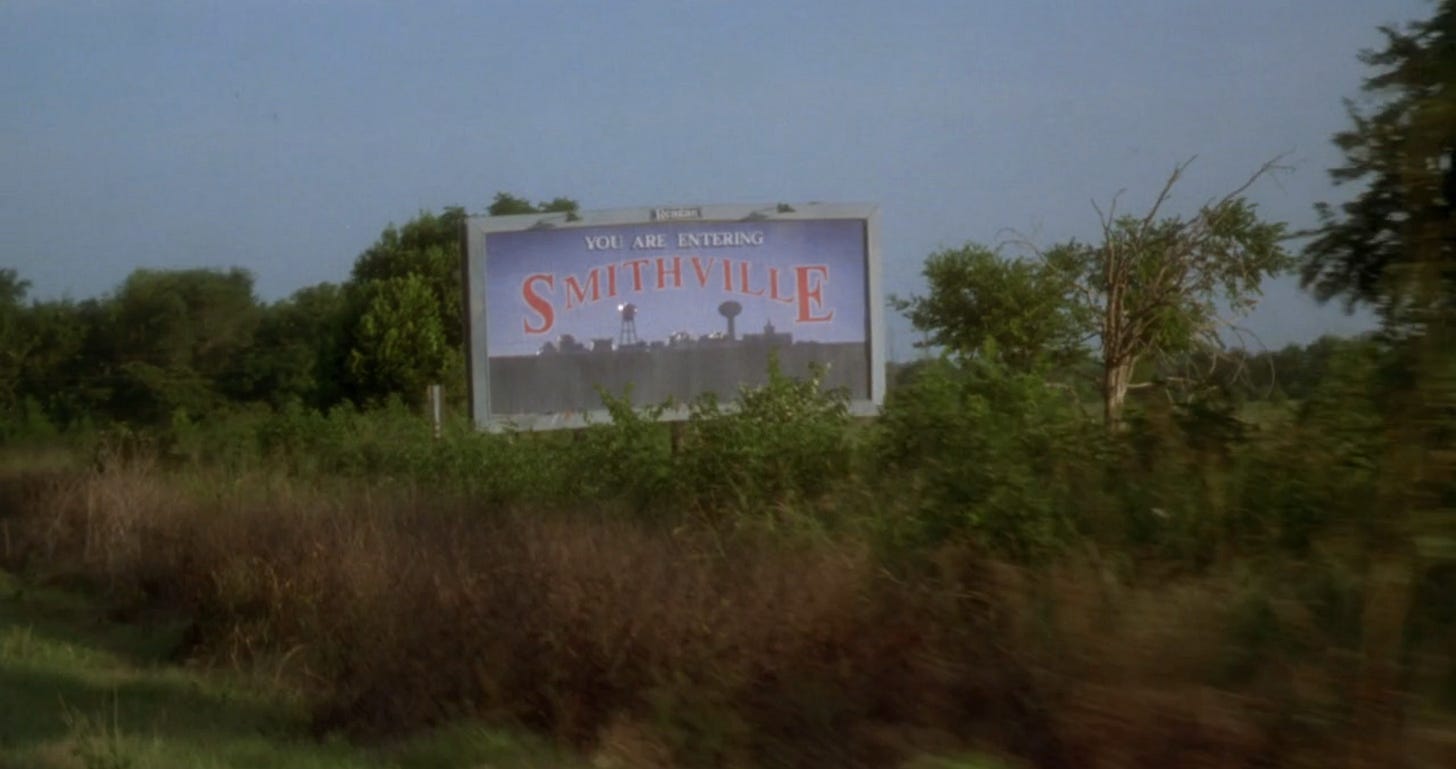
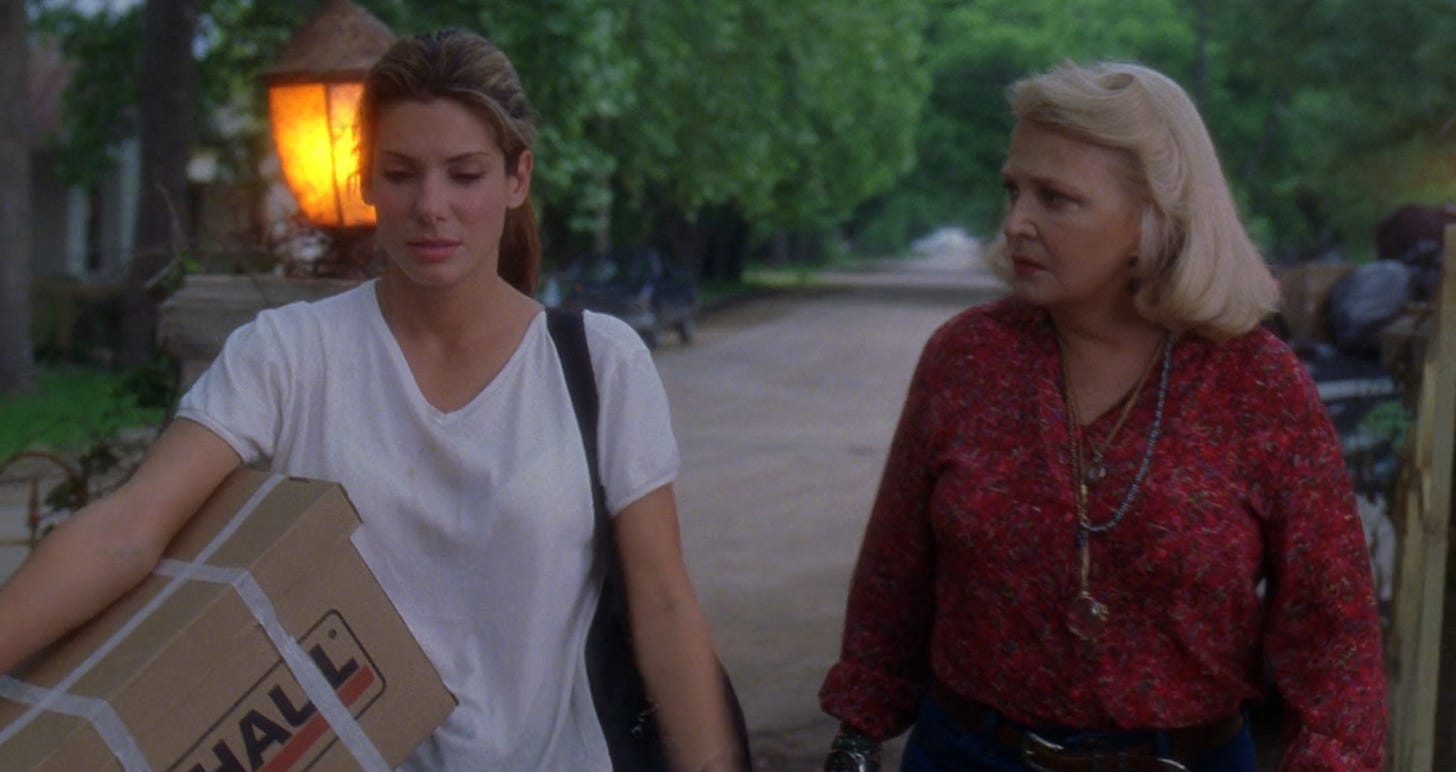
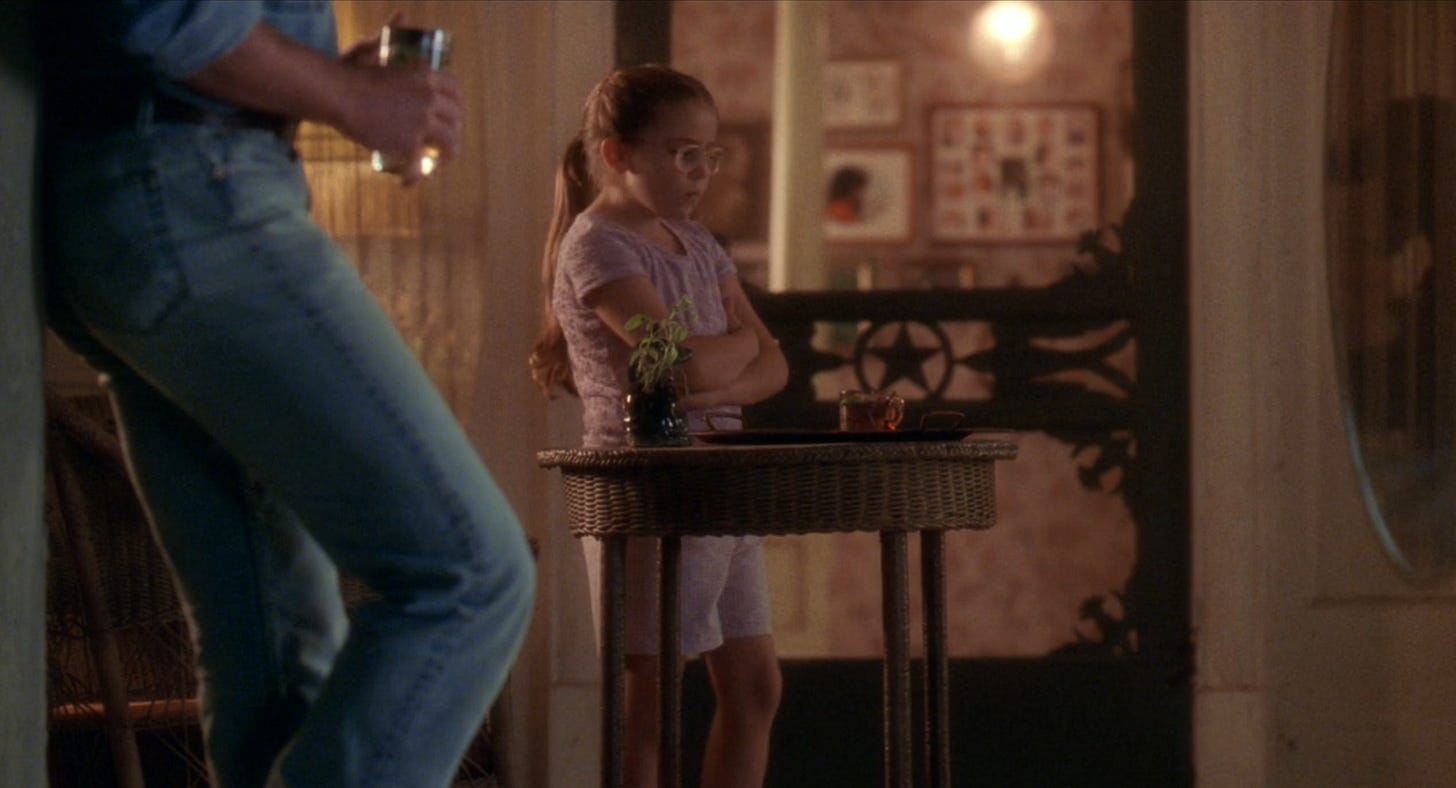
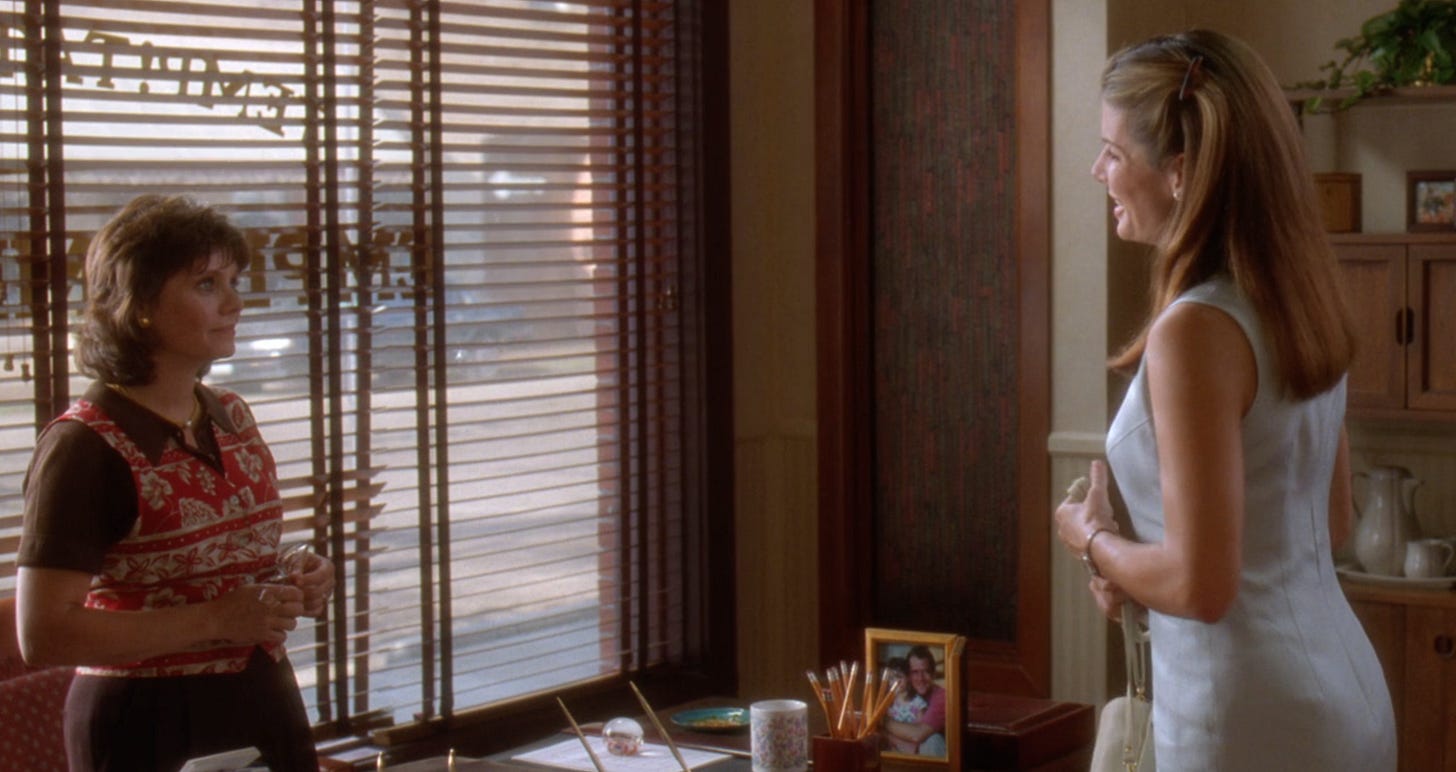
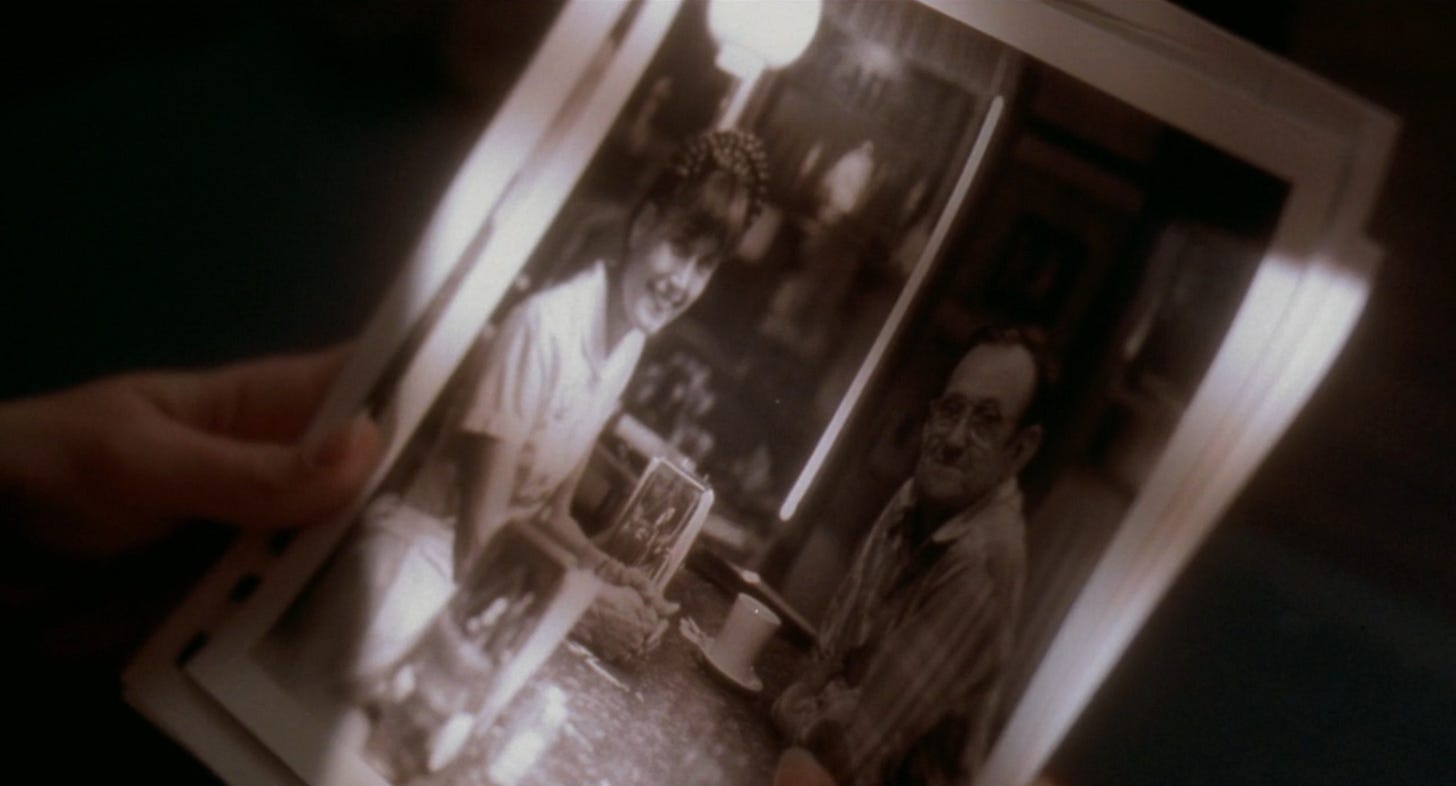
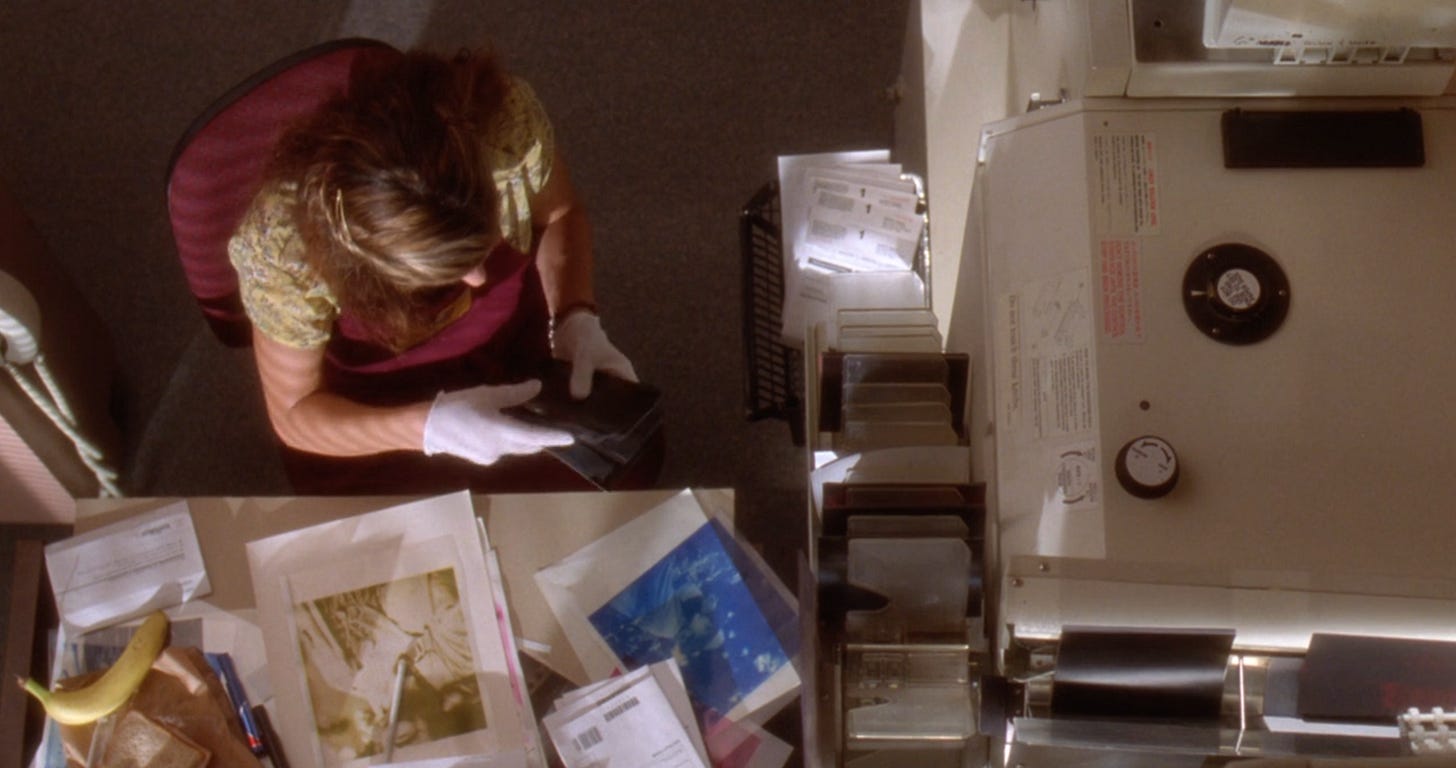
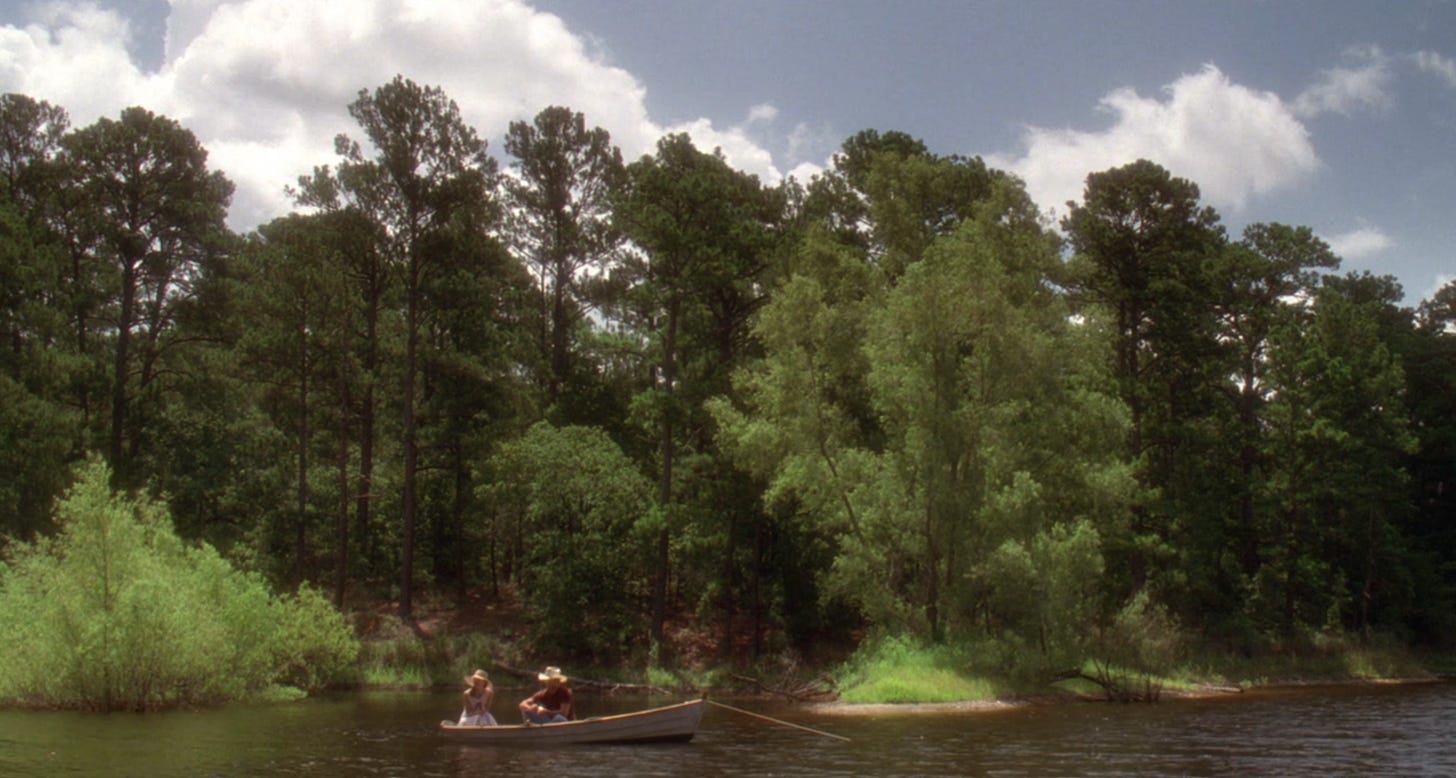
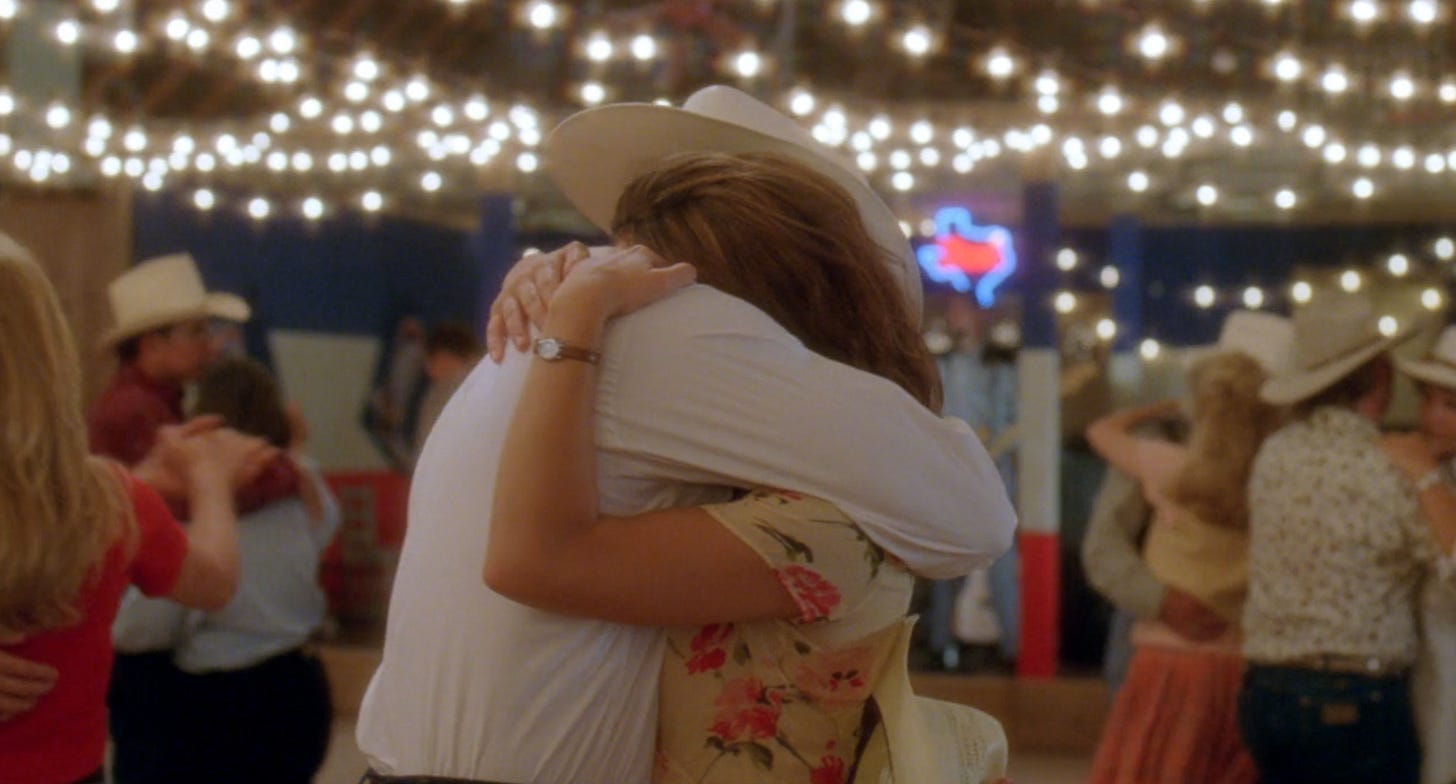
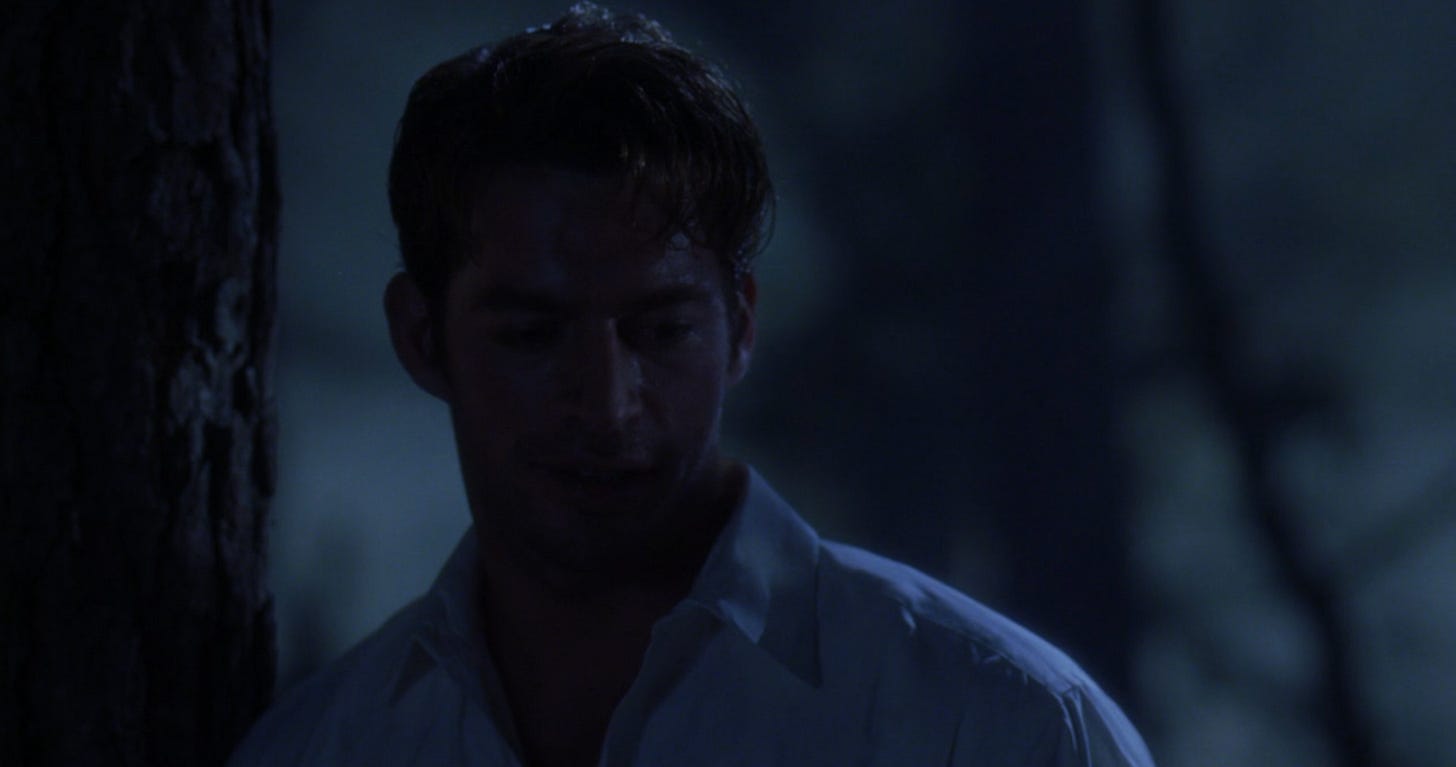
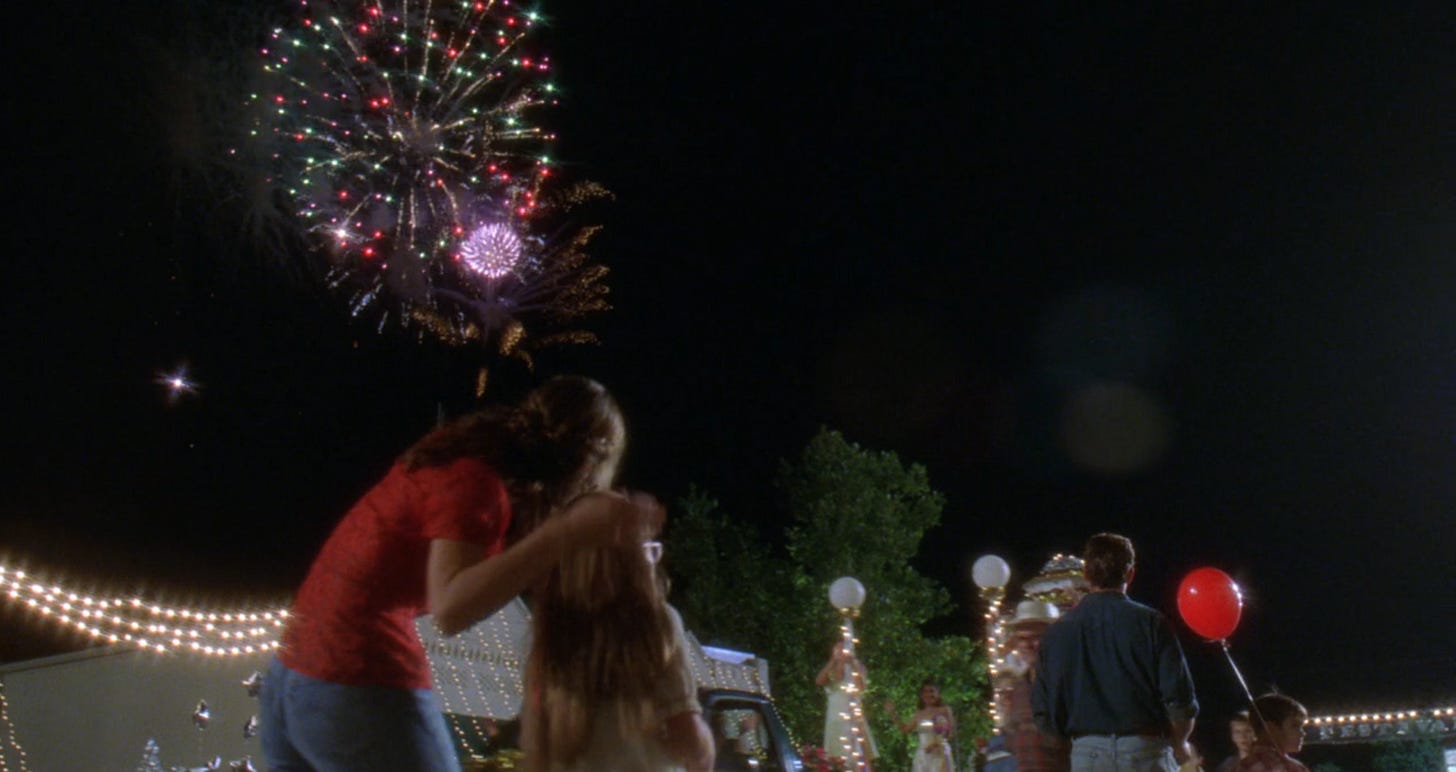
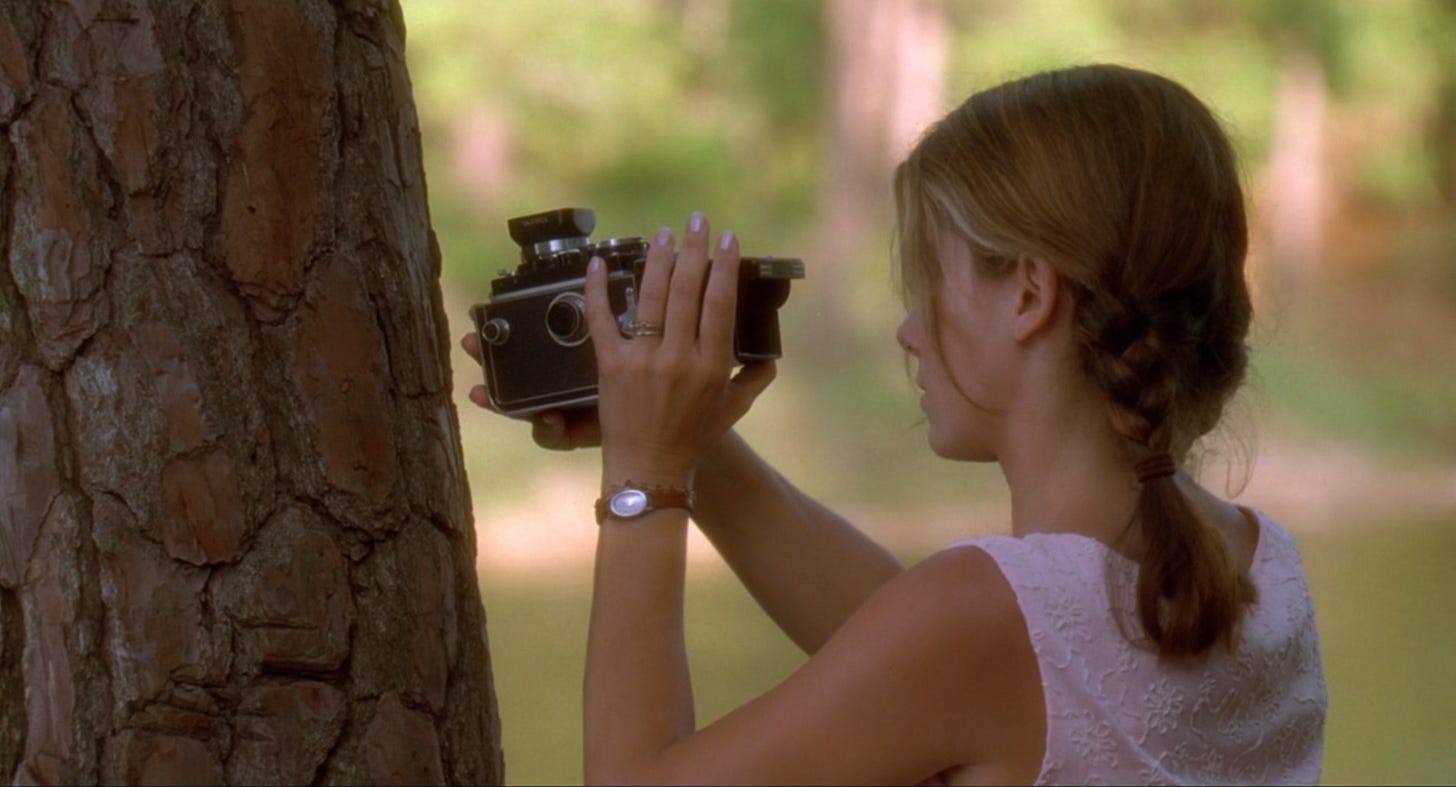
My parents eschew this as the worst thing they ever saw in theaters. You have entirely convinced me to watch this with my wife before year's end.
This is such an interesting take on this film, which I really should have watched back when I lived in Houston. Yes, Smithville is real, though my only experience of it is racing on a mountain bike venue there. It’s making me nostalgic for those earlier, more innocent days, of driving the seemingly interminable I-10 and Hwy 71, passing through La Grange, Smithville, Bastrop on the way to Austin.